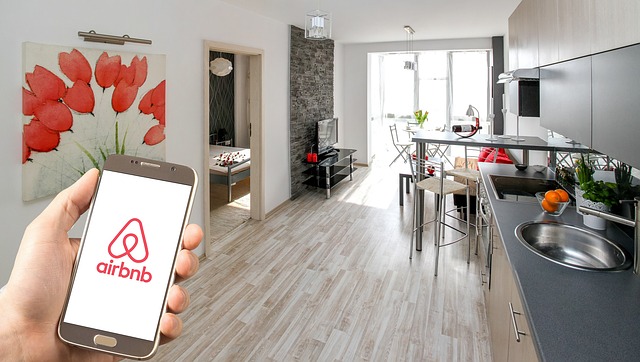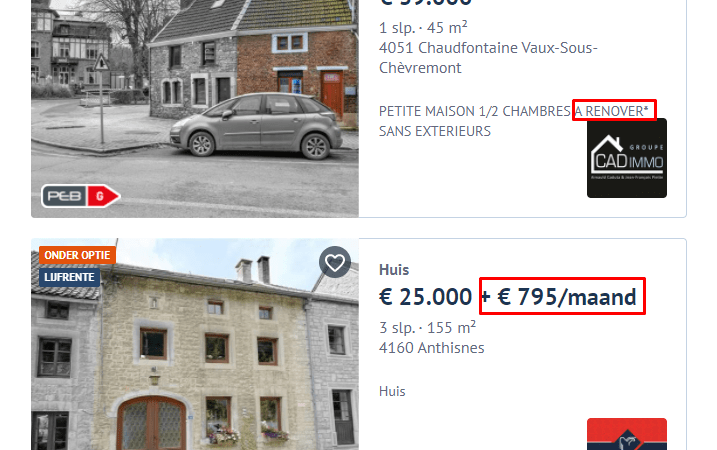Belastingen op vastgoed in België
Laatste update: 27 augustus 2022
Zoals je zonder twijfel weet, zijn de Belgische en Nederlandse regeringen nogal fan van alles en iedereen te belasten op wat ze ook maar kunnen.
Dit is uiteraard ook het geval bij vastgoed, op meerdere vlakken.
Waarom we de regering elk jaar moeten betalen voor het privilege om iets te bezitten en daar winst mee maken is me een raadsel, maar kijk, hier zijn we dan.
Persoonlijk investeer ik niet in vastgoed in Nederland en België, en belastingen zijn hier 1 van de 3 voornaamste redenen van.
In dit artikel bekijk ik welke belastingen je allemaal zal moeten betalen bij het hebben, verhuren en/of verkopen van vastgoed in België.
Later bekijken we dit ook voor Nederland.
Belastingen op vastgoed bezitten
Om te beginnen zal je registratierechten moeten betalen bij het aankopen van vastgoed.
Deze hangen af van waar je pand zich bevindt en in welke situatie je zit (is het je eerste woning, een tweede verblijf, pure investering…), de grootte van het pand, wat is het kadastraal inkomen, enzovoort.
In België is dat ongeveer 6%, maar je kan “korting” krijgen voor bescheiden woningen (<€200.000, of als je “ingrijpende energetische renovatiewerken” uitvoert binnen 5 jaar na aankoop).
Bij de aankoop van nieuwbouw zijn er geen registratierechten, maar wel BTW.
Uiteraard houdt het hierbij niet op, want als je denkt dat je na het betalen van de aankoopsom en de belastingen daarop geen kosten meer hebt, ben je serieus mis, en dan onderschat je de hebberigheid van de overheid nogal sterk.
Elk jaar zal je zaken moeten betalen zoals grondlasten/onroerende voorheffing (gebaseerd op het kadastraal inkomen), lokale belastingen zoals milieubelasting, huisvuilbelasting, heffingen via personenbelasting, enzovoort.
Je betaalt de overheid in feite huur voor jouw eigendom. Schandalig, toch?
En als je een pand aankoopt met het oog op dat te verhuren, en dit niet je eerste verblijf is, zal je ook nog een tweedeverblijftaks mogen ophoesten.
Belastingen op vastgoed verkopen
Jouw eigendom verkopen aan een ander individu lijkt me iets waar de overheid niets mee te maken heeft, dit is een persoonlijke transactie.
Het is jouw eigendom, dus je zou denken dat je dit gewoon van de hand kan doen en dat de staat zich hier niets mee zal moeien, maar uiteraard is dat niet het geval.
Je moet afdokken in de vorm van meerwaardebelasting.
Dit komt neer op 16,5% van het verschil tussen de aan- en verkoopprijs, maar er zijn een heleboel andere factoren die hierbij een rol spelen.
Belastingen op vastgoed verhuren
Inkomsten van je vastgoed moet je altijd aangeven bij de personenbelasting, waarbij er een onderscheid wordt gemaakt tussen verhuren aan particulieren of verhuren aan iemand die het huurt voor professionele doeleinden, bijvoorbeeld voor een kantoor of horecazaak.
De belastingen worden berekend op basis van het kadastraal inkomen van je pand.
Conclusie
Zoals je kan zien, de kwestie van belastingen in de vastgoedsector in België is een hele warboel en er is veel om rekening mee te houden en om voor af te dokken.
Ik heb het al meermaals gezegd, en aangetoond door middel van mijn serie Vastgoed doorheen de Wereld: investeren in vastgoed en België is een slecht idee, als je kijkt naar welke andere opties er zijn.
Als je een huis, appartement of wat dan ook wil aankopen, om wat voor reden dan ook, zou ik je aanraden om eerst de andere opties eens te overlopen:
In elk van deze streken kan je wel een betere optie vinden, afhankelijk van je criteria.
En in de meeste gevallen zijn de belastingen erop ook nog eens een pak lager.
Kortom, belastingen op vastgoed in België zijn alomvattend, veel te hoog, en volledig debiel.
Als je zelf in vastgoed in de Filipijnen wil investeren, kan je Serenity Relocation contacteren.



